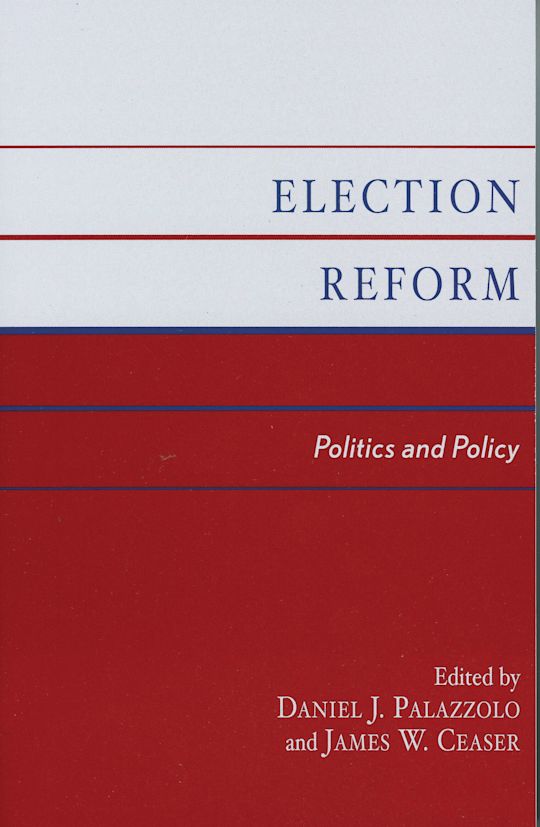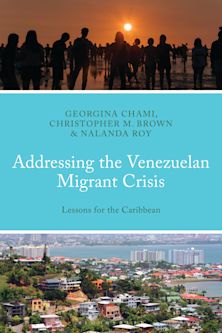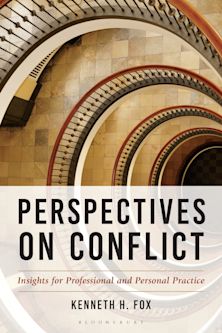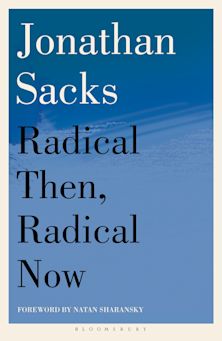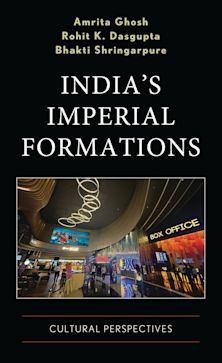- Home
- ACADEMIC
- Politics & International Relations
- Politics - Other
- Election Reform
Election Reform
Politics and Policy
Daniel J. Palazzolo (Anthology Editor) , James W. Ceaser (Anthology Editor) , Bruce Cain (Contributor) , James W. Ceaser (Contributor) , Doug Chapin (Contributor) , Joshua Dyck (Contributor) , James Gimpel (Contributor) , Mathew Gunning (Contributor) , David Kimball (Contributor) , Martha Kropf (Contributor) , Glen Krutz (Contributor) , R Doug Lewis (Contributor) , Sarah Liebschutz (Contributor) , Todd Lochner (Contributor) , Karin MacDonald (Contributor) , Susan A. MacManus (Contributor) , Jerome Maddox (Contributor) , Robert Montjoy (Contributor) , Gary Moncrief (Contributor) , Elizabeth Peiffer (Contributor) , Randall Strahan (Contributor) , John T. Whelan (Contributor)
Election Reform
Politics and Policy
Daniel J. Palazzolo (Anthology Editor) , James W. Ceaser (Anthology Editor) , Bruce Cain (Contributor) , James W. Ceaser (Contributor) , Doug Chapin (Contributor) , Joshua Dyck (Contributor) , James Gimpel (Contributor) , Mathew Gunning (Contributor) , David Kimball (Contributor) , Martha Kropf (Contributor) , Glen Krutz (Contributor) , R Doug Lewis (Contributor) , Sarah Liebschutz (Contributor) , Todd Lochner (Contributor) , Karin MacDonald (Contributor) , Susan A. MacManus (Contributor) , Jerome Maddox (Contributor) , Robert Montjoy (Contributor) , Gary Moncrief (Contributor) , Elizabeth Peiffer (Contributor) , Randall Strahan (Contributor) , John T. Whelan (Contributor)
For information on how we process your data, read our Privacy Policy
Thank you. We will email you when this book is available to order
You must sign in to add this item to your wishlist. Please sign in or create an account
Description
Election Reform: Politics and Policy is the definitive work on the manner in which policymakers responded to the crisis that emerged from the 2000 presidential election. Editors Daniel Palazzolo and James Ceaser address two fundamental questions: How did the states and Congress respond to the problems in election law and administration that became apparent in the 2000 election? What factors explain the variety of ways in which different states responded? The book includes a theoretical framework for explaining election reform, an account of the Help America Vote Act, and in-depth studies of election law reform in eleven selected states. Anyone interested in the election crisis of 2000 and in the lessons learned from a major transformation of our electoral institutions will find this book essential reading. The book also contributes to the academic literature on policy innovation in the United States.
Table of Contents
2 Election Reform After the 2000 Election
3 HAVA and the States
4 Section II: Leading Major Reform States
5 Goodbye Chads, Butterfly Ballots, Overvotes and Recount Ruckuses! Election Reform in Florida, 2000 to 2003
6 Entrepreneurial Leadership and Election Reform in Georgia, 2001 to 2003
7 Maryland: Policy Entrepreneurship in a One-Party State
8 Section III: Incremental Change States
9 Idaho: Election Reform at the Margins
10 Election Reform in Virginia: Deliberation and Incremental Change
11 California: Low Tech Solutions Meet High-Tech Possibilities
12 Pennsylvania: New Policies, Old Politics
13 Dogs and Dead People: Incremental Election Reform in Missouri
14 Section IV: Late-Developing Reform States
15 Arizona: Concerted Effort, Gridlock, and Then Breakthrough
16 Illinois: Ending the Gridlock
17 New York: An Antiquated System Resistant to Change
18 Section V: Conclusion
19 Beyond the End of the Beginning
Product details
| Published | 01 Dec 2004 |
|---|---|
| Format | Ebook (Epub & Mobi) |
| Edition | 1st |
| Extent | 336 |
| ISBN | 9780739154540 |
| Imprint | Lexington Books |
| Publisher | Bloomsbury Publishing |
About the contributors
Reviews
-
After the election of 2000, the drive for deep electoral reform collided with the political realities of partisan disagreement, tight budgets, and a structural bias in favor of incremental change. This book features a number of scholarly assessments at the state level identifying how and why reforms occurred (or didn't occur) in the aftermath of butterfly ballots, hanging chads, and recount madness. Of equal interest to experts, students, or concerned citizens, Election Reform is both a study of election law and an insightful peek into the real world of policy making in the states.
Andrew E. Busch, Claremont McKenna College
-
This collection is a timely and well-crafted assessment of the trials and tribulations of election reform.
John C. Green, director, Bliss Institute of Applied Politics, University of Akron









